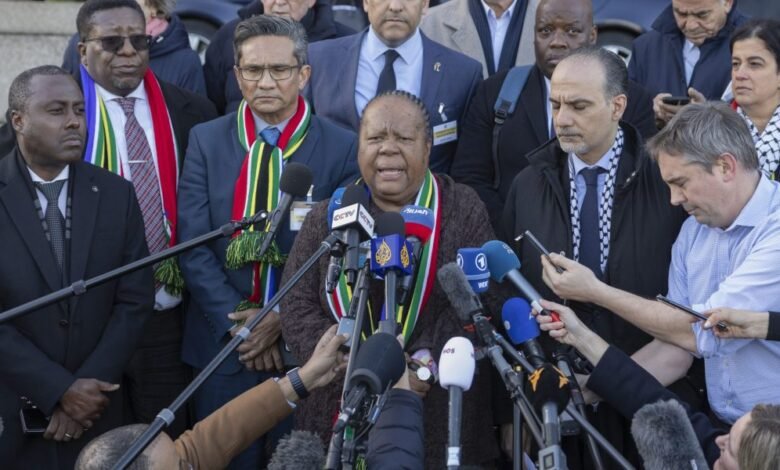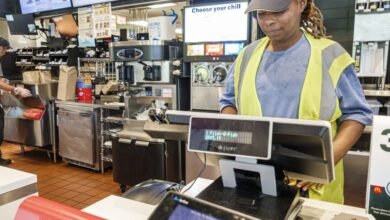South Africa should be truly non-aligned–and stop risking its vital trade ties with the West


South Africa can count itself extremely fortunate that it has been provisionally accepted in the list of 32 African countries that will make up the extended African Growth & Opportunity Act (AGOA). The AGOA Summit held in Johannesburg last year was a critical inflection point for a continent in dire need of preferential trade agreements. It is vital that the trade program will be extended for another 10 years–and there is every indication that it will be.
The primary objective of AGOA has always been to promote economic growth and trade in Africa by rewarding good governance with duty-free access to American markets. It’s precisely for that reason that Uganda, Gabon, Niger, and the Central African Republic (CAR) were excluded from last year’s summit by U.S. President Joe Biden.
However, influential U.S. Senator Chris Coons, who introduced draft legislation to extend AGOA beyond the previous 10-year extension to 16 years, wanted to make South Africa’s membership subject to an out-of-cycle review and even possibly revoke it because of the country’s increasing courtship of administrations and regimes inimical to the U.S.
South Africa has been particularly steadfast in its unwavering support of Russia’s invasion of Ukraine and subsequent war to say nothing of a regime that openly sponsors terrorism, Iran. This stance has been directly at odds with the rest of the world, particularly in the U.S. axis of influence.
South Africa’s most recent position, outrightly hostile to Israel and very sympathetic to Hamas, culminating in dragging the State of Israel to the International Court of Justice (ICJ), could well have led to South Africa being punished and excluded from AGOA–a prospect that still looms over U.S.-S.A. relations.
If this had happened, it would have been a profound sanction, because South Africa has been the biggest beneficiary of the trade agreement, to the tune of $3 billion last year alone.
AGOA significantly tilts the balance of trade in Africa’s favor. In 2022, the U.S. exported $30 billion in trade to Africa, up from $6 billion when AGOA first came into effect in 2000, but it also imported $42 billion from the continent. It is a massive figure, which comes into even sharper focus when seen against the trading balance sheets of African countries with anyone else, including China (the biggest trading partner with Africa outside of the U.S.) and Russia (which has no trade balance worth the name, especially not with South Africa).
Africa has much to offer the world, but it is not a single country. There are 54 constituent countries that make up the continent and each one of them must operate with due diligence both toward the needs and aspirations of its own citizenry and a concomitant coherence in its foreign policy. It is not enough to merely proclaim to be non-aligned if the acts of a sovereign country fly in the face of its claims.
There is no doubt that African countries have battled for decades, first to rid themselves of the legacy of colonialism and then to fight new battles against neo-colonialism in the guise of asymmetric economic warfare, exploitative extractive trade, and emasculating aid in return. There can also be no doubt that Africa has much to offer the rest of the world. The continent is the primary home of the resources critical to the world’s green industrial revolution, particularly the minerals that fuel electric vehicles (EVs). And the West is in critically short supply of lithium, tin, and tungsten, unlike China.
Both the continent and the global order have markedly evolved since the implementation of AGOA almost a quarter of a century ago. We saw this during the last BRICS+ summit, also held in Johannesburg last year. There was much talk about a brave new world of de-dollarization and the expansion of the bloc by a further six members in Argentina, Egypt, Ethiopia, Iran, Saudi Arabia, and the UAE.
I said at the time that Africa should be wary of being drawn into a battle of polarities–the binary of the West versus the rest. China has done much to increase its trade with Africa. Indeed, China’s cumulative trade account of $270 billion eclipses the U.S.’s $80 billion. But Africa would be foolish in the extreme to ignore the strides that President Biden’s administration has made, reinvigorating the country’s Africa focus with more than 800 reciprocal deals across 47 countries. In December 2022, Biden’s U.S. Africa summit witnessed the announcement of more than $15 billion in deals between more than 300 U.S. and African companies. In total, the U.S. has pledged $55 billion toward its shared priorities with the continent until 2025.
African countries would be foolish to put all of this at risk by overtly siding with one side, yet claiming neutrality, all while expecting the other side to continue to reach out. AGOA is a very serious passport to the U.S. market, building on an existing legacy of trade links with the U.S. It is certainly as important as China’s Belt and Road Initiative–and worth immeasurably more than any trade opportunities past, present, or future with Russia and Iran.
The African Youth Survey, which takes the pulse of the continent’s next generation of leaders, is unequivocal: 37% of young Africans see President Biden as the world leader playing the greatest role in Africa, well ahead of President Xi Jinping (13%) and Vladimir Putin (whose stature was in the single digits even before he invaded Ukraine).
And yet, South Africa has been acting with an arrogant sense of impunity that is not just insensitive to global realities, but also oblivious to the needs of its citizens. African leaders need to put their own countries first, not their parties or even their own individual interests. Trade, not aid, is the way to unlock the still untapped potential of this continent and herald the much-vaunted African Century. President Biden’s New Deal for Africa is a key pillar of this.
Being truly non-aligned means being able to benefit from relations across the globe and have the right to sit at any table as a trusted partner.
Trade deals shouldn’t be handouts. They must result in mutual benefits for all parties and come with conditions for all sides. The original request in Senator Coons’s draft bill that South Africa be subject to an out-of-cycle review of its membership in this agreement was neither unfair nor unreasonable. But it was also proof that the days of acting with impunity, with no thoughts of the consequences, are over.
South Africa should have the humility to recognize this and act accordingly. I can only hope for my country and my continent’s sake that the South African government can do this and be the African leader we all need it to be.
Ivor Ichikowitz is an industrialist and a philanthropist. He chairs the Ichikowitz Family Foundation, a leading African-based foundation supporting the development of the African continent and its people. He has been involved in a supportive role with the African Peace Initiative to Ukraine and Russia.
More must-read commentary published by Fortune:
The opinions expressed in Fortune.com commentary pieces are solely the views of their authors and do not necessarily reflect the opinions and beliefs of Fortune.
Source link



